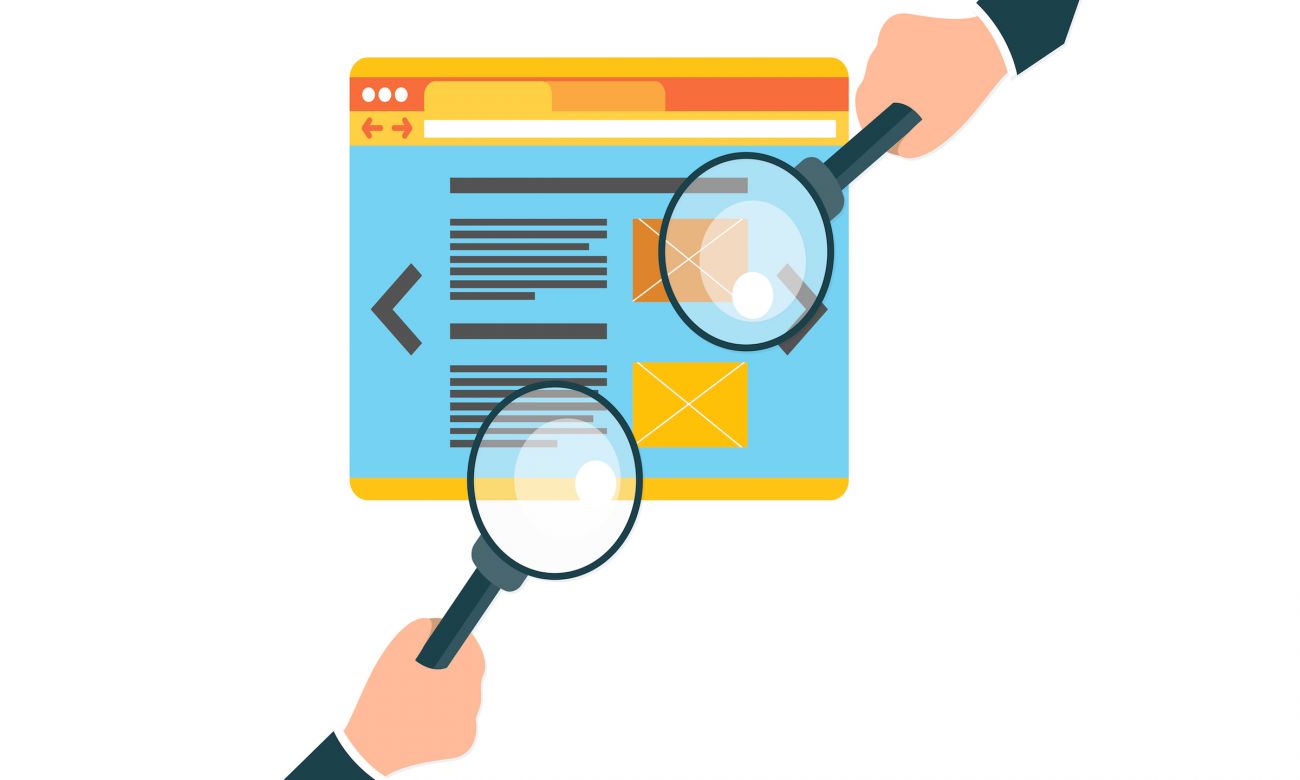The internet brings you the world of information with a touch or a click. In the U.S., tens of millions of people — about one in three of us — use the internet to seek health information. The most common reasons are to diagnose a problem or learn more about a diagnosis, treatment or drug. Searching is the easy part. The challenges come with the results. Entering “prostate cancer” into Google gives you 135 million results in 0.6 seconds. How can you tell if a website or its content is trustworthy?
Assess the Website
Look for these important parts of every website:
1. Purpose. Does the website have an “About Us” section that explains its purpose and provides contact information? It should be clear whether the purpose is to market the organization, sell products or services, or provide information. Look at the suffix of a website’s address to get a basic idea of its source:
- .gov means the site belongs to a U.S. government agency. (Cancer.gov is the National Cancer Institute.)
- .edu indicates the site is from an educational institution such as a university or college. (There is no cancer.edu because .edu sites usually include the school name For example, Buffalo.edu is the site for SUNY at Buffalo.) The two domain suffixes .gov and .edu cannot be purchased.
- .org usually represents a nonprofit organization such as a patient or professional group (Cancer.org is the American Cancer Society.) Although it may be a nonprofit organization, keep in mind that the site’s purpose may be to persuade (to donate or get involved) more than educate.
- .com suffixes are for commercial websites. (Cancer.com is from Janssen pharmaceuticals, a Johnson & Johnson company.)
- Two letter suffixes often identify a country of origin such as .ca for Canada, .mx for Mexico, .uk for United Kingdom and .in for India. (Cancer.ca is the website for the Canadian Cancer Society.)
2. Security. Look at the website’s address bar (URL) at the top to see if it begins with https. The s and a small padlock in the address bar indicate a secure website.
3. Privacy. Although it may not be an exciting read, check out the privacy/security section to learn what information the site will collect about you — and what they do with that information. You can be tracked through the use of “cookies” from a single visit. Twenty years ago, Amazon amazed us by making suggestions on what we might like based upon what we viewed or bought. Today, you can browse the internet looking at ovens and then go to your facebook page and find advertisements for ovens.
You can disable the use of cookies in your internet settings but some sites, or parts of a site, will not function if you don’t accept cookies. You can set your browser to have a “private” session, where your data, cookies, history and passwords are deleted when you close the browser window. Learn how by reading this article from an online magazine. (Look for small check boxes that give permission for the website to share your information with their partners or companies with related products or marketing. Oftentimes, these boxes are already checked, so you will have to manually uncheck them.)
4. Design. Is the site accessible and easy to use or do you have to dig to find what you need? Is it slow to load? Does it adapt to both a computer and a mobile device? The information may be great, but it won’t help you if you can’t find it — or find your way back to it.
5. Trust Marks and Accreditations. Ethical considerations are also important in considering the quality of an online resource. This includes the site’s transparency regarding how it makes money, what it does with your information and whether there are any conflicts of interest. Check to see if the website is certified or accredited by HONcode (Health on the Net) or URAC and has PrivacyTrust Certification.
Never miss another Cancer Talk blog!
Sign up to receive our monthly Cancer Talk e-newsletter.
Consider the Content
Research shows that the better the quality of the online information, the more trustworthy the source. Folks prefer information that is understandable, unbiased, accurate, up-to-date and complete. If it is general information, it should have a disclaimer that it is not medical advice. When you read the content, look for the following indicators:
1. Author. Is the author's or reviewer's name and credentials listed? If the author is a licensed medical provider (doctor, pharmacist, nurse, PhD, etc.) writing on a for-profit site, such as a pharmaceutical company, does the site disclose conflicts of interest or whether the provider gets any compensation? Do not take a personal story or blog as medical information. Even people with the same type and stage of cancer could have very different experiences.
2. Time. Health information should always be dated. Medical science changes quickly and if you don’t know when something was written, then you can’t know if the information is still valid.
3. Evidence/Claims. You want to use websites whose content reflects evidence-based medicine and best practices. Avoid sites that sensationalize the information, whether it’s a miracle cure or a dire warning.
4. Writing style. Poor grammar and misspellings can be a clue that the site is unreliable. Long sentences, difficult words, medical jargon, poor syntax and lots of statistics can indicate the site has a purpose other than helping patients and caregivers learn. This does not mean the information is unreliable, but you may have to do more research and reading to understand it.
5. Interactive. Some sites have interactive tools. At the very least, it should have a way for users to exchange their information and a way to provide feedback to the website’s owner.
In addition, review the HON Code of Conduct for medical and health websites.
What If I’m Unsure About the Information?
Get a second or third opinion. Is the information similar to what you find on reliable sites such as:
- Cancer.gov (National Cancer Institute)
- Cancercare.org (CancerCare)
- Cancer.net (patient site from the American Society of Clinical Oncologists/ASCO)
- NCCN.com (patient site from the National Comprehensive Cancer Network)
You are also welcome to visit Roswell Park’s Resource Center for Patients and Families, located inside the Sunflower Café (cafeteria) on the 1st floor of the hospital. Remember, you and your oncologist are partners. Discuss any information you find online – regardless of source – with your doctor before you make any treatment decisions.
If you feel very anxious, it may be best to fight the urge to search online for medical information. Because there is so much health content on the internet, it is far too easy to find information that does not apply to you.

